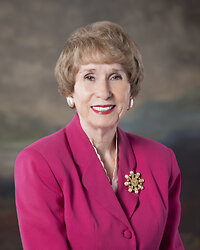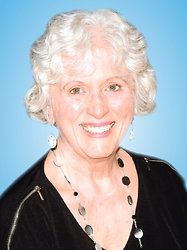Last month, I presented Worden's first two tasks needed for working through grief. They are:
(1) accept the reality of the loss.
(2) work through the pain of grief.

The first task is so important because the griever will not be able to heal and move on without accepting the loss. The second task involves working through all the emotions that are uncorked during the grieving process. Working through all the feelings takes time, but, in our society, there is pressure to be "over it" after the funeral. The reality of it all is that even after the first anniversary of the loss, we may feel like we just started the grieving process.
The third task is to adjust to an environment in which the deceased is missing. We are asked to adjust to life alone. Loneliness is such a difficult emotion to experience. We have the challenges of living alone, raising the children alone, facing an empty house, managing home maintenance and finances, and caring for self. We soon realize that the things we depended on our partner to do, such as pay the bills, fix the car, etc, we now have to do those things or find someone to do them. We have to adjust to doing things such as having an operation without our loved one. Now that person is gone and we wonder what are we going to do with the rest of our lives. We have to adjust to the environment without our loved one.
We will not be the same,
nor will life be the same. We and our
life will be different, but it will be worth
living. With time and grieving,
the pain will lessen.
During this task we may feel helpless, inadequate, or incapable. To figure out how to take over the deceased's roles takes time and patience. It is also during this task that we work to make sense of our loss and regain some sense of control over our lives. We are called to rediscover and redefine who we are. A part of our identity was connected to the deceased's life. Now we have to reinvent ourselves and redefine ourselves.
The fourth task is to emotionally relocate the deceased and move on with life. The loved one is not forgotten but is put in a special place so that we can move on to enjoy life again. It has been said, "The person died but the relationship continues." We will never forget them, but, in order to move on, we need to begin getting involved in living, participate in activities and allow ourselves to have fun. Some of us feel guilty if we are having a good time because the loved one is not there. We have to ask ourselves, "What would our loved one be telling us now?"
We will not be the same, nor will life be the same. We and our life will be different, but it will be worth living. With time and grieving, the pain will lessen.
Dr. William E. Austin is a licensed psychotherapist and holds a Doctor of Divinity degree. He is a therapist with Tidewater Pastoral Counseling Services . He is well known for his warmth and sense of humor. His book, Creating Our Safe Place - Articles on Healthy Relationships, can be purchased through www.amazon.com.
Tidewater Pastoral Counseling: 623-2700
CURRENT COLUMNS
On The Front Porch With You 
Memories of Homeby Rob LauerChildren First 
Dandelion Timeby Becky AdamsRelationships 
When Your Security Blanket is in the Dryerby Dr. Bill AustinPublisher’s Point 
Time To Moveby Jean Loxley-Barnard
